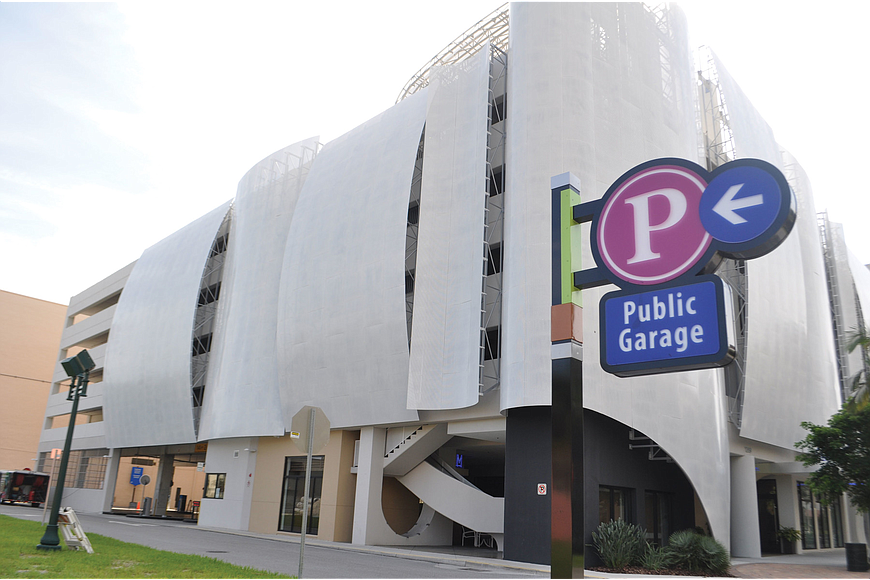- May 6, 2024
-
-
Loading

Loading

A jury has asked the city to pay nearly $50 million to a developer in a decade-old dispute regarding the development of the site of the Palm Avenue garage and Art Ovation Hotel.
The decision came Monday evening in a lawsuit filed in 2010. The plaintiff, Buck-Leiter Palm Avenue Development, alleged the city breached its contract when it decided not to move ahead with the developer’s plans for the city-owned site.
City Attorney Robert Fournier confirmed the ruling, which he said his office planned to discuss at a forthcoming City Commission meeting. The city is exploring its opportunities to appeal, he said.
Morgan Bentley, an attorney with the Bentley and Bruning law firm who represented the city in the suit, expressed dismay at the jury’s verdict. He said there were potential issues with the decision the city would contest — including the $49,782,431 award, which was based on claims of lost profit from the project that was never built.
“I do think it’s a shockingly large number, given the entire city budget is something like $200 million,” Bentley said. “This is a number that is all out of proportion to anything that might be reasonable for the city to deal with.”
According to court records, in 2007, the city approved an initial redevelopment agreement with Buck-Leiter for the Palm Avenue property. Buck-Leiter's plans included a 453-space garage, a 77,000-square-foot hotel, 18,500 square feet of retail space and 150 condominium units.
Negotiations with Buck-Leiter continued following the initial agreement. In June 2008, however, the City Commission voted to end its collaboration with the developer following a recommendation from staff.
Buck-Leiter alleged the initial redevelopment agreement was intended to be binding. The developer argued the city did not operate in good faith when it did not finalize the agreement. The city said there were outstanding issues to negotiate following the initial agreement and argued it was not bound to follow through on developing the parcel with Buck-Leiter.
In 2015, Circuit Court Judge Kimberly Bonner ruled that no contract was formed, and therefore no breach of contract occurred. In 2017, however, Florida’s Second District Court of Appeal overturned that decision, sending the case back to the 12th Judicial Circuit Court.
The jury trial in the lawsuit began May 16, with Judge Erika Quartermaine presiding. According to court documents, the jury was instructed that four conditions needed to be met to award damages to Buck-Leiter. Those conditions included proof “the city failed to do something essential which the contract required it to do” and “the developer was harmed by that failure.”
For the developer to recover lost profits, it had to prove “the city's actions caused the developer to lose profits” and that it could “establish the amount of its lost profits with reasonable certainty.”
According to jury questions included in court records, at one point, the jury had reached a unanimous decision on the verdict but had not reached a unanimous decision regarding damages “and (appeared) to be deadlocked.”
Tom Leiter, a Peoria, Illinois-based attorney who represented Buck-Leiter in the case, said the verdict was a strong affirmation that the city breached a contract with the developer. He expressed confidence the decision would stand.
“I do not, actually, have any concern this case would be reversed on appeal,” Leiter said. “The facts were overwhelming that there was plenty of evidence to support the jury’s verdict.”
He said the plaintiff would seek additional compensation from the city in the form of attorney fees and prejudgment interest from the time the developer believes the city breached the contract. He said the size of the award reflected not only lost profits from the hotel venture, but also the time the developer devoted to the project.
“This situation was created by the City Commission and their breach of the contracts,” Leiter said. “They created the damages, not the developer.”
In a statement, the city said it was premature to discuss how the ruling would affect day-to-day operations and finances. In an email to staff today, City Manager Tom Barwin assured employees city business would carry on as usual for the time being.
“Please continue to go about your work serving our residents and visitors in an exemplary fashion with professionalism, courtesy and responsiveness as we all continue to strive to maintain and improve Sarasota as a great place to live, work and play,” Barwin wrote in the email.
The city did not provide further comment on how the verdict, if upheld, might affect the government's budget and operations.
Bentley said there remained post-trial motions that needed to be addressed before the city could decide how to proceed.
“There’s a lot left to be worked out on all of this and a long way to go,” Bentley said.
Bentley said the city would not have to pay any award until after an appeal is decided. He said an initial appeal could take more than a year, and the case could be appealed to the Florida Supreme Court, if necessary.
Fournier, who served as a witness in the trial, declined to comment substantively on the facts of the case. He plans to discuss the decision at a May 31 City Commission meeting. Fournier suggested the $49 million award was one aspect of the ruling he found questionable.
“Let’s just say there are some legal issues there with the amount of the verdict and how it was derived,” Fournier said. “That’s what I’ll be prepared to talk about a little more extensively.”